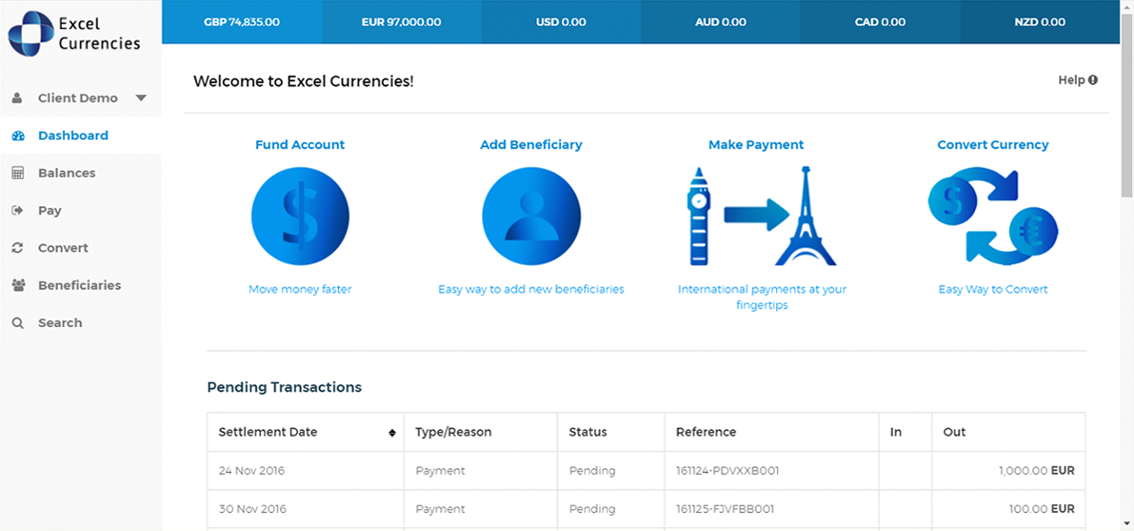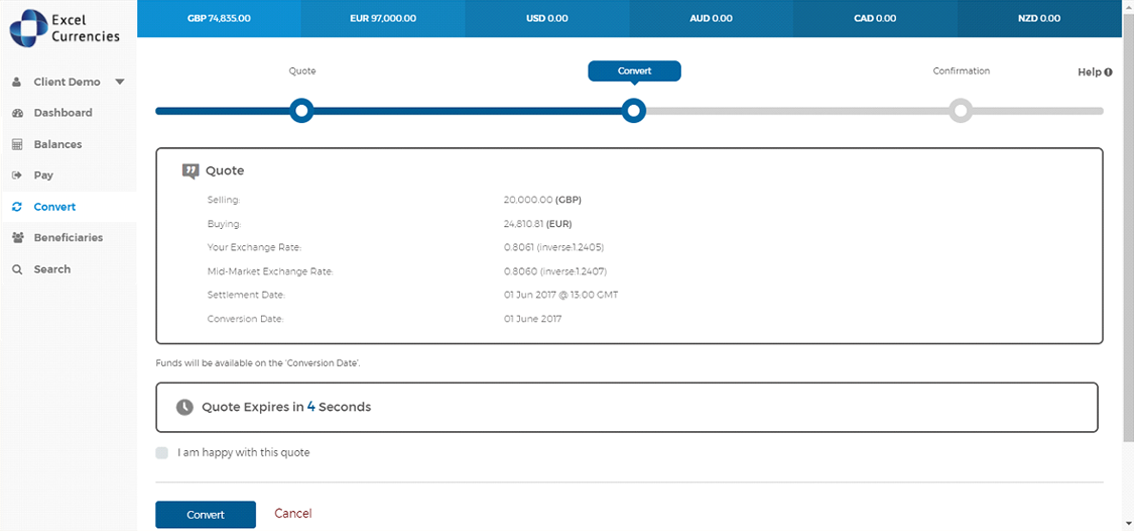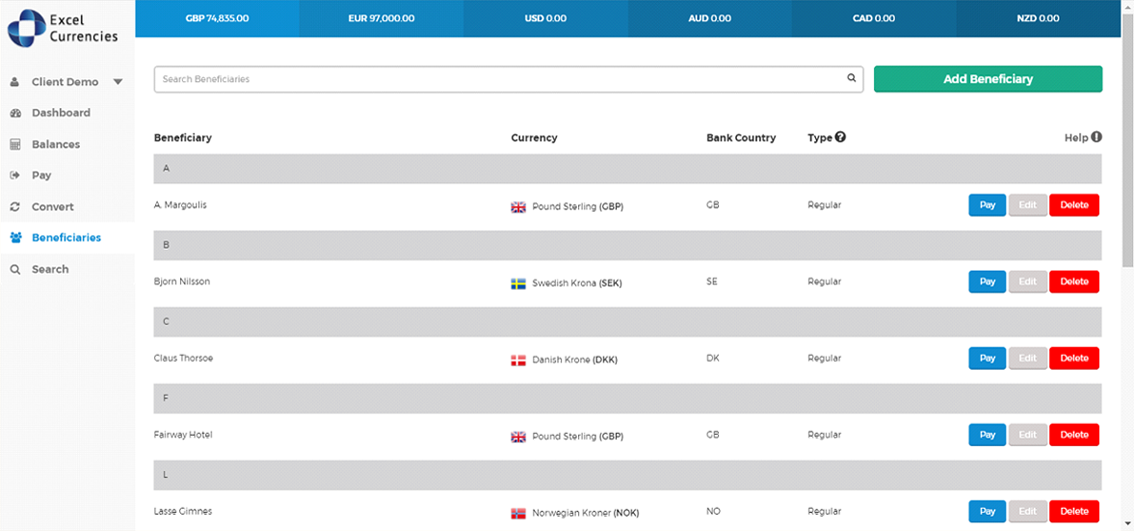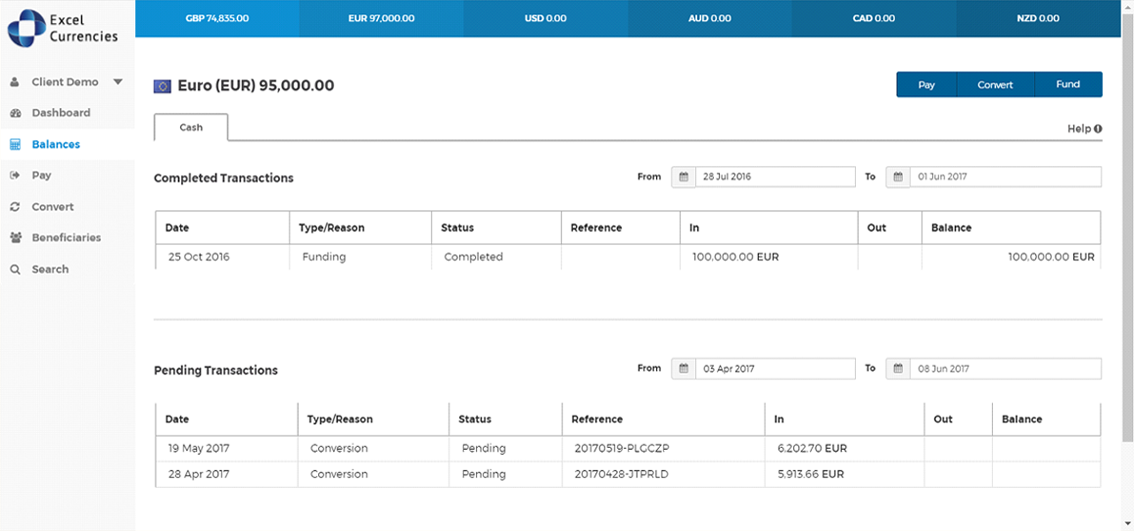What is currency risk?
Currency risk (often known as exchange rate risk) is the risk that foreign investors or businesses operating internationally face in terms of erratic profits or losses resulting from fluctuations in the value of one currency relative to other.
For example, when the profits or dividends from an investment are converted from a foreign currency into GBP, these adjustments can result in unforeseen gains or losses.
Currency risk is crucial for businesses to assess as it
directly impacts their profitability and financial stability.
Fluctuations in exchange rates can significantly
affect the cost of imported goods, the value of foreign investments, and the
competitiveness of exports.
Sudden currency devaluations or appreciations can lead to unexpected
losses or gains, disrupting budgeting, pricing strategies and cash flow
projections.
For best-in-class currency risk
management, check out Excel Currencies. The traders at Excel Currencies are
experienced in handling all sizes of currency risk on behalf of a wide range of
customers.
Types of currency risks

Below are the different types of currency risks that you
probably should track..
Transaction risk
When a business imports or exports, this transaction
risk occurs. In this case, the future cash flows become unclear as the home
currency paid or received will change if the exchange rate varies between
agreeing to the contract in a foreign currency and receiving or paying cash.
Translation risk
This occurs during the import or export process for a
business. The amount of home currency paid or received will fluctuate if the
exchange rate moves between committing to the contract in a foreign currency
and paying or getting the cash. This in turn will make the future cash flows lack
certainty.
Economic risk
Economic risk is defined as a possibility that an
investment or the future prospects of a company, whether domestically or
internationally, will be impacted by macroeconomic conditions, or state
of the economy as a whole. Exchange rate swings, changes in laws or
regulations.
Political turbulence, or
the imposition of economic penalties are a few examples of the economic risks.
To measure, or predict these economic risks, financial analysts employ a range
of econometric models and indicators, including the Economic Uncertainty Index.
Jurisdiction risk
Jurisdiction risk is defined as the possible legal,
financial, or reputational consequences that could result from making
investments or conducting business in a certain area or nation. The distinct
political, legal, economic, and regulatory landscape of the relevant
jurisdiction is the main cause behind such risks.
To minimize potential losses and make the right
decisions, businesses, wealth managers, and investors must have a thorough
understanding of jurisdiction risk.
Interest rate risk
Interest rate risk is the chance that a shift in interest
rates could lead to a loss. Changes in interest rates can have a great
impact on exchange rates. When a country raises an interest rate, its
correlated currency grows more valuable and the opposite occurs when a
country lowers its interest rate.
Stop burying your head in the sand and tackle
your currency risk head on with the team at Excel
Currencies.
Why resolve currency risk?

You may look to resolve the currency risk for your business
for several key reasons -
Ensuring financial stability
Unmanaged currency risk can
lead to financial instability, as businesses may experience unexpected losses
due to unfavorable exchange rate movements. By resolving currency risk,
companies can maintain financial stability, ensuring they can meet their
financial obligations and sustain operations even in volatile market
conditions.
Enhanced competitiveness
Currency risk resolution enables businesses to remain
competitive in the global marketplace. By managing exchange rate
fluctuations effectively, companies can maintain stable pricing for their
products or services, preventing competitors from gaining an advantage through
currency-related price fluctuations.
Facilitate Strategic Planning
Resolving currency risk provides businesses with greater
certainty when developing strategic plans and setting long-term goals.
By understanding and mitigating the impact of currency fluctuations, companies
can make more informed decisions regarding investments, expansion initiatives,
and international partnerships.
Protecting Profit Margins
One of the primary reasons to resolve currency risk is to protect
profit margins. Fluctuations in exchange rates can directly impact the cost
of goods sold and the revenue generated from international sales.
For businesses that import or export goods, sudden currency
movements can erode profit margins or even lead to losses. By hedging against
currency risk through financial instruments such as forward contracts,
businesses can lock in exchange rates and safeguard their profitability.

Excel Currencies has been in business since
2004 and are fully authorised and regulated by the FCA. Customer funds are held
in safeguarding accounts with tier 1 banks only. Excel Currencies use sophisticated
anti-fraud measures to keep your money safe.
The bottom line
Undoubtedly, currency risk assessment is crucial for
businesses to effectively manage their international operations and achieve
their goals. By understanding the potential impact of exchange rate
fluctuations on their financial performance, businesses can make the right
decisions and implement strategies to mitigate currency risk.
Furthermore, effective currency risk management
enables businesses to focus on their core operations and strategic initiatives
without being unduly distracted by currency fluctuations.
Are you ready to get your currency risk under control?
Get in touch with Excel Currencies now!

 Twitter
Twitter Facebook
Facebook linkedin
linkedin Google
Google









